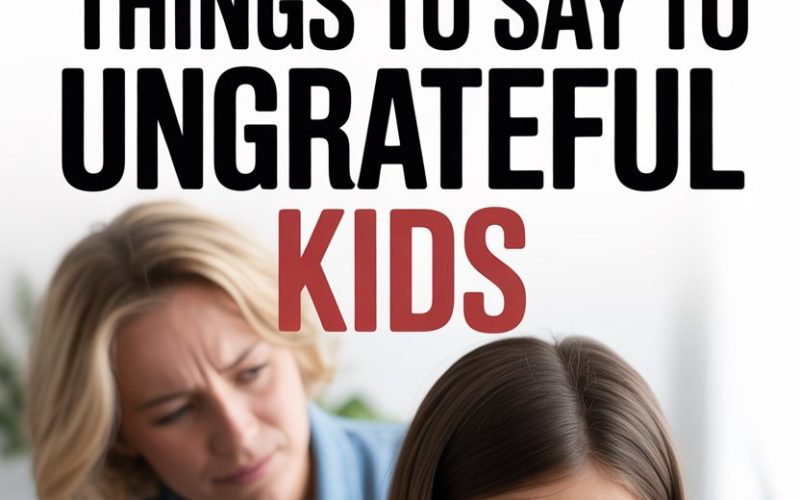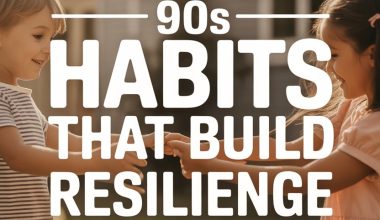Sometimes, the tiniest pair of feet stomps the loudest.
If you’ve ever spent your hard-earned cash on a treat, only to be told it’s “not the right colour,” or cooked dinner that gets met with the world’s most dramatic sigh, you know the unique pain of dealing with an ungrateful child.
Rest assured, you’re not alone. Gratitude doesn’t always come naturally—especially to small humans wired for instant gratification and novelty.
Good news: what you say (and how you say it) can make a real difference.
Here are eight things you can say to help your little (or not-so-little) ones grow their gratitude muscles.
1. I notice you’re disappointed. Would you like to talk about it?
Brushing off your child’s feelings or giving them a “You should be grateful!” lecture is a recipe for an eye-roll.
Sometimes, what’s underneath the ungrateful comment is genuine disappointment or frustration—about something that might seem trivial to us, but feels massive to them.
Pausing to acknowledge those feelings helps children feel seen, and it opens the door for actual conversation. According to parenting expert Dr. Laura Markham, validating feelings leads to more cooperative behaviour in the long run.
You don’t have to agree with the meltdown over the blue cup instead of the red one, but recognizing the disappointment can make all the difference.
2. What could we say to show thanks for what we have?
Gratitude can be taught, just like table manners or tying shoelaces. Encouraging kids to brainstorm ways to express thanks helps gratitude become a habit, not a forced response.
Why not ask for their ideas? You might get everything from “Thanks, Mum,” to “Can I draw a thank-you picture for Grandma?”
Giving your children a voice in how they express thanks (even if it’s a little odd or wobbly) helps it stick.
According to research from the Greater Good Science Center at UC Berkeley, regular gratitude practices improve well-being and strengthen family bonds. Who knew a sticky-fingered thank-you card could be so powerful?
3. I work hard to provide these things for you. How do you think that feels for me?
No, you’re not guilt-tripping your child for fun. You’re teaching empathy—which is a close cousin to gratitude. The trick is to keep it calm, factual, and (ideally) free of martyr vibes.
Try sharing how effort feels. “It takes me a while to earn the money for your trainers. When you toss them in the mud right away, it feels a bit discouraging.” Pause. See what wisdom your child dishes out.
You might be surprised—most kids can imagine what it’s like to have their own efforts overlooked.
4. It’s okay not to love every gift, but can we find one thing to appreciate?
Not every present, meal, or experience will be met with a parade and fireworks. Sometimes, your child receives a book when they desperately wanted a game, or gets broccoli instead of chips. It’s human to feel let down.
Encourage your child to search for a sliver of gratitude, even when their heart’s not in it. Maybe the jumper from Aunt Jean is itchy, but it’s their favourite colour.
Maybe the day at the museum wasn’t the dream activity, but they liked the dinosaur bones. Shifting the focus from lack to abundance is a lifelong skill.
5. Everyone has days when they wish for more. What’s one thing you’re grateful for today?
Gratitude journals aren’t just for Instagram wellness bloggers. Keeping a mental (or actual) tally of things to appreciate, even on tough days, rewires the brain for more positive thinking, according to research on gratitude and well-being.
You might say, “We all have days that feel ‘meh.’ Still, what’s one thing you liked about today?” The answer might be “dessert,” “the dog,” or “my favourite song on the radio.” That’s enough.
The goal? To show gratitude isn’t only for picture-perfect moments—it’s a practice for every kind of day.
6. What could we do to help someone else feel appreciated?
Sometimes, gratitude springs up when kids step into someone else’s shoes. Try flipping the script: instead of focusing on what your child lacks, invite them to make someone else’s day brighter.
Could they help set the table for Gran? Write a silly note to their teacher? Compliment their sibling’s epic Lego tower? Even tiny acts of kindness help children see the ripple effect of appreciation.
Research from Harvard’s Making Caring Common Project suggests that when kids practise kindness, they become more attuned to gratitude in their own lives.
7. Thank you for sharing how you feel, even if it’s hard to hear
When your child huffs, “I wish I had what Ollie has!” or “Why can’t we just order pizza like other families?” it might sting. But, hey, at least they’re being honest. That’s something.
Rather than shutting them down, acknowledge the courage it takes to speak up—without promising them everything on their wish list.
You might answer, “It’s not easy to say when you’re disappointed. I appreciate that you’re honest with me.”
Children who feel safe sharing their frustrations are more likely to listen when you gently guide them toward gratitude (and perhaps, more realistic expectations).
8. Gratitude isn’t about ignoring what you wish you had. It’s about appreciating what you do have
This one’s for those “Why can’t we have a bigger house/car/holiday?” moments.
Remind your child (and yourself, honestly) that wanting things is normal, but gratitude is about noticing what’s here, not what’s missing.
A simple phrase like, “It’s okay to wish for things, but let’s also pay attention to what’s great right now,” keeps the door open for dreaming, while grounding the conversation in appreciation.
It’s a both-and, not an either-or.
What If They Roll Their Eyes Anyway?
Even the most beautifully delivered gratitude lesson can fall on deaf ears. No need to panic—or chase your child around the house with a gratitude journal.
Kids learn gratitude over time. Sometimes it clicks after a heartfelt conversation, sometimes it takes years of gentle reminders (and, yes, a few eye rolls).
The most important piece? Keep modelling appreciation yourself.
Thank your partner for making tea, tell your child you love the picture they drew, let them see you appreciating the small stuff.
Gratitude grows best in a household where it’s lived, not just lectured.
One day, when you least expect it, your child might surprise you with a thank-you for the tiniest thing. And, suddenly, all those conversations, sighs, and sticky-fingered thank-you cards feel worth it.
Even if the broccoli still gets pushed around the plate.





